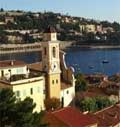Even though the official start of the election campaign is not until February 25th, the residents of Villefranche-sur-Mer now feel that they are witnessing, after a rather uncertain period that allowed all sorts of speculative guesses about the real intentions of local political figures, a rallying for battle. Things are not necessarily clearer, but the main protagonists are beginning, if one dares say, to leave the harbor!
Within a few days of each other, both the declared candidates and those yet to declare – both have until mid-February to submit their lists – have sped up the pace of their meetings and their presence in the field for the former, and discreetly assembled their team members, exchanged information, and outlined electoral strategies for the latter. This appearance of a true start should not, however, obscure the existence of multiple pretenses capable of clouding the perception of the stakes.
The first pretense is the unexpected inclusion of Jean-Pierre Mangiapan on the incumbent Mayor Gérard Grosgogeat’s list, which continues to raise many questions. Indeed, it is difficult for the head of a list to admit and manage a political figure of this importance. So much so, one wonders if the outgoing Mayor might pass on his mandate to this new strongman, relegating definitively the never-realized ambitions of his current deputy mayor and thus pushing back the aspirations of younger elected officials recently arrived from Nice.
This “return to Villefranchois roots,” as the main interested party keeps proclaiming, is certainly not devoid of ambiguities. If, as his main detractors assert, Christian Estrosi did not want him on his Nice list, this so-called “ejection,” this imposed or calculated rejection, could nevertheless largely serve the interests of the President of the General Council and, in all likelihood, those of the next mayor of Nice. A “win-win” situation, so to speak. A doubly rewarding strategy for the current Secretary of State for Overseas Territories, who, once rid of his ministerial portfolio, will be able to extend his influence beyond the Bay of Angels and introduce into this constituency of the three Corniches a man with the potential stature of a deputy. This is not apparently an analysis that the Deputy Mayor of Menton has conducted, if we are to believe one of the closest collaborators of Jean-Paul Geay, an opposition candidate to the outgoing mayor. The “wolf in the sheepfold” mentioned, also according to him, by Colette Giudicelli, shows that the couple from Menton must have significantly felt the whistle of the bullet and be reminded of what many Villefranchois whisper quietly in the streets about the redrawing of the constituency: “Menton is a bit far!” In these conditions, a political re-centering due to a more attractive Nice gravity center seems inevitable.
Whatever the case, this potential territorial extension of Nice’s influence can only embarrass, this time for the post of General Councilor, another major figure of the region: the Mayor of Saint-Jean Cap-Ferrat and Vice-President of the influential departmental institution, René Vestri. One of the opposition candidates, after having recently met him, claims – truth or hoax? – that this veteran of local politics is preparing a public statement against the running mate of Gérard Grosgogeat. This would imply an indirect withdrawal of his support. Would he go as far as to covertly encourage the creation of a unified list of opponents to the outgoing mayor? Nothing seems to indicate this at the moment since Jean-Luc Morlino, also a declared opponent of Gérard Grosgogeat, acknowledges “not having been contacted” in this regard by the foremost citizen of Saint-Jean.
Another uncertainty, the dual Nice and UMP hues of the Grosgogeat-Mangiapan list might also play against this alliance. “Narcissism of small differences” obliges, Villefranche is not Nice and Nice is not Villefranche. The announcement of upcoming meetings initiated by the “Villefranche for All” Association of the outgoing mayor on social issues, where primarily Nice political leaders are invited, mixes interest and skepticism: Dominique Estrosi is certainly widely appreciated for his effective urban policy and the Dean of the Faculty of Medicine, Benchimol, has powerfully contributed to the improvement of health conditions in the region. Yet, the inhabitants wonder, does this mean “those who bring them have no idea on these issues?”
Another significant ambiguity, the politicization of the election campaign desired by the President of the Republic. Insistently claiming UMP endorsement, the outgoing mayor also risks alienating part of his traditional electorate for whom municipal elections must remain above all a strictly local affair. The undeniable popularity of Christian Estrosi, even in Villefranche, might however suffer from the public’s diminishing perception of the image of the Head of State. What happens in many major cities in France where elected officials, although members or reputedly close to the majority, are reluctant to “UMP-ize” the campaign, reflects, at the scale of a town of 7000 inhabitants, a greater acuity.
This is likely why the two main opponents of the outgoing mayor are trying, not without real difficulty, to assemble “pluralistic” teams, without political labels and resolutely motivated by local interests. Aware of the formidable electoral machine of “Villefranche for All,” Jean-Paul Geay and Jean-Luc Morlino are not trying to confront it on its own ground but, like in martial arts, are striving to exploit the power and size of the opponent.
Separated, they have little chance – if any – of winning. However, if they were to unite in a common list from the first round, a possibility that cannot be entirely dismissed given the numerous encouragements they receive in this regard, the situation could probably change. It is certain that channeling undecided voters, in one direction or the other, would be significantly intensified.


